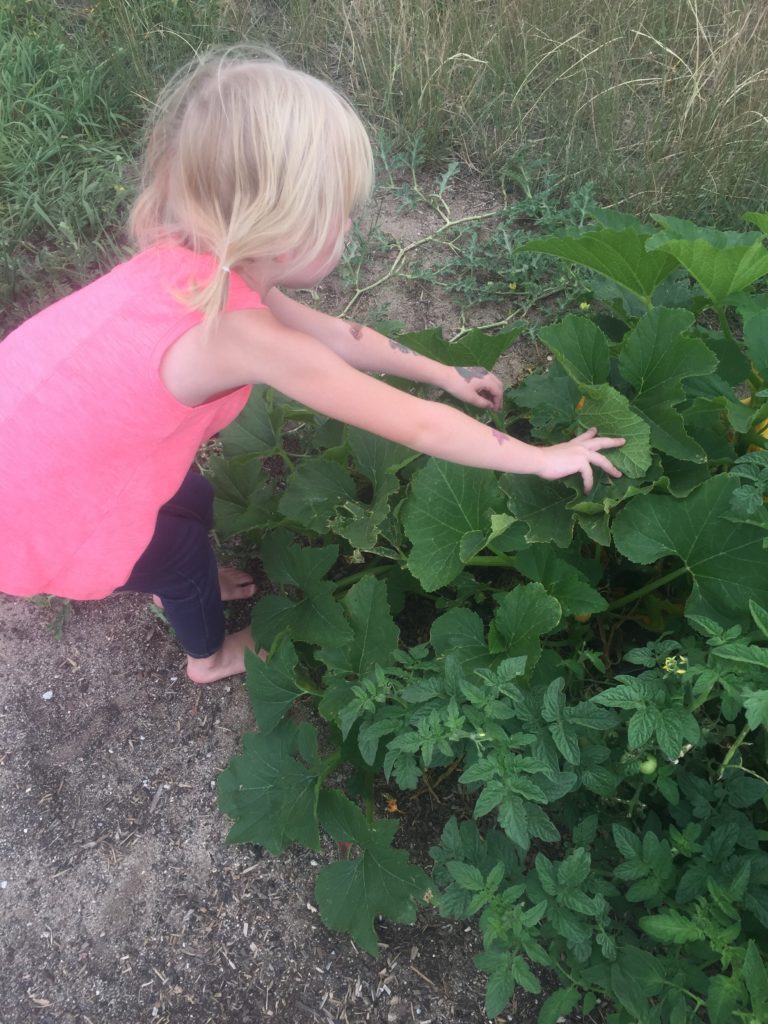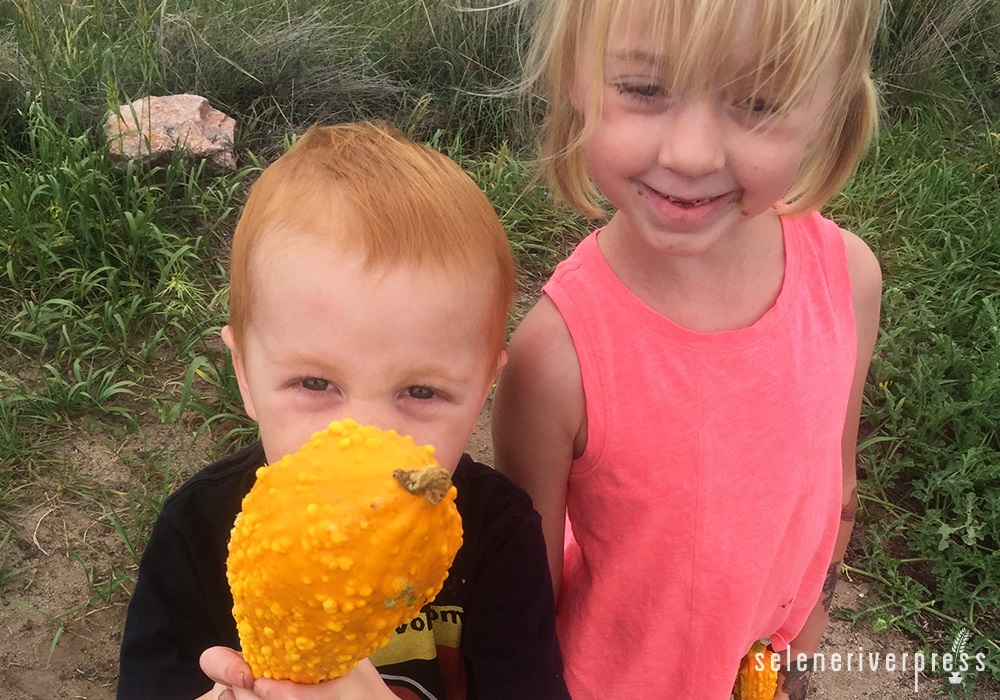Back in June, I wrote a post to help me answer a question: is starting a garden really worth it? Gardening, I discovered, is no joke! Much more work than I originally thought goes into preparing and planting. Yet despite that, the answer is yes, it really is worth it. Now that the gardening season is over I can look back and reflect on what I’ve learned.
My biggest takeaway from gardening is the value of patience. Unless you have a natural green thumb, which I most certainly do NOT, you won’t create the perfect garden the first time around. Some of your seeds may never sprout. Weeds may overtake some of your crops. Bugs may feast on your plants, birds and rabbits may nibble on your berries, hail and heavy rains may wipe out your tomato plants. The important thing to remember is that you learn and grow (pun intended 😉) from each hiccup and setback, so you can do even better next season.
And yes, all of the above happened to me. Especially the bugs and hail. I understand why locusts were a plague in the Bible because they most certainly were a plague in my garden! About half of my plants didn’t sprout or produce edible produce, and a few waves of hail devastated those that did. Most of my tomatoes stayed green. My watermelon never grew larger than a grape. Setback after setback after setback. Yet I still left this growing season optimistic and excited. And I’ll tell you why…
I may have had a lot of fails, but I had a lot of wins too! I grew plants from seeds in the harsh soil of the Colorado prairie where I live. I kept my garden area clear of weeds, which will help produce better soil for growing next year. My squash thrived so much that we ended up with more than we could eat.
Most importantly, my kids loved every second of it. Time after time my daughter would come running to me, squealing with delight, grabbing my hand and pulling me along to show me the squash and tomatoes. Every day my son looked forward to getting the hose and watering the plants. They learned the joy and value of planting, maintaining, and harvesting a garden, invaluable lessons they will forever remember. Above all else, this made every last hardship and frustration we experienced with the garden worth it.
Looking back, here’s what I’ve learned from my first gardening venture:
Invest in garden beds. Raised beds would have helped us contain weeds, saved us from the grasshopper hoard, and helped keep birds, bunnies, and other pests out. You don’t even need to go spending a ton of money on them because it’s quite easy to make your own.
Try more than one all-natural pest repellant. When it comes to natural pest control, go big. I tried garlic water with limited success. I also used some organic pest and insect repellants, which worked pretty well but weren’t effective enough on their own. The bird feeder was a good idea, but one wasn’t nearly enough. Next year, on top of all that, I plan on purchasing praying mantis eggs to hatch in my garden, adding more bird feeders and baths, and possibly getting some chickens to eat all the grasshoppers before the grasshoppers can feast on my plants.
Cover your plants. Garden covers are almost as important as garden beds. Not only do they help with insects and pests, but more importantly they also protect your plants from hail (a huge issue if you live in Colorado). So many people I know were devastated when the hail came along last spring and destroyed the beautiful gardens they’d worked so hard on. Like garden beds, it’s easy to make garden covers yourself.
Be selective with your plants. When I went shopping for seeds, I just grabbed whatever looked good. But now I know that not every seed grows everywhere, and certain seeds grow much better in Colorado (like my squash) than others. I recommend doing your research first. The Organic Gardner’s Handbook and Rocky Mountain Fruit and Vegetable Gardening are two excellent resources for novices and experienced gardeners alike.
Compost and healthy soil really do matter. Sure, I bought a couple small bags of organic soil to add to my dirt before I planted, but I didn’t really understand the importance the soil plays in the crop. Now I know much better that the soil we grow our crops in has a direct correlation to our health, as Mark R. Anderson explains in From Soil to Supplement.
Compost is essential for maintaining healthy soil for your future crops. As Tim Spark explains in his post “How to Start Your Own Sustainable Garden”:
“When it comes to a sustainable garden, compost is an easy first step. Simply gather into a pile any organic matter that you have. This includes garden cuttings, dead leaves, and even raw food waste from inside the home. If you monitor what you put into the compost, you can create a nutrient rich meal that will alter the pH levels of the soil.”
In the end, despite all the setback and fails—or maybe because of them—I can answer my question with a yes—gardening is absolutely 100% worth it!



This post is great, Danielle!! It makes me think of when our boys were little and we still lived in Wisconsin near my parents. We used to plan, plant & tend to a garden with my dad. It was great fun and lots of work. I remember the year I decided we should plant kale. Halfway through the growing season, when we were all knee deep in the stuff, my dad looked at me and said, “We don’t need to grow this again.” HA! Cracked me up!!
Anyway, keep on keepin’ on with those life lessons for your kids. Hopefully thier enthusiasm will continue into their own garden planting years. :)
Thanks for the comment Paula! The kale bit made me laugh. I can see my husband doing the exact same thing!